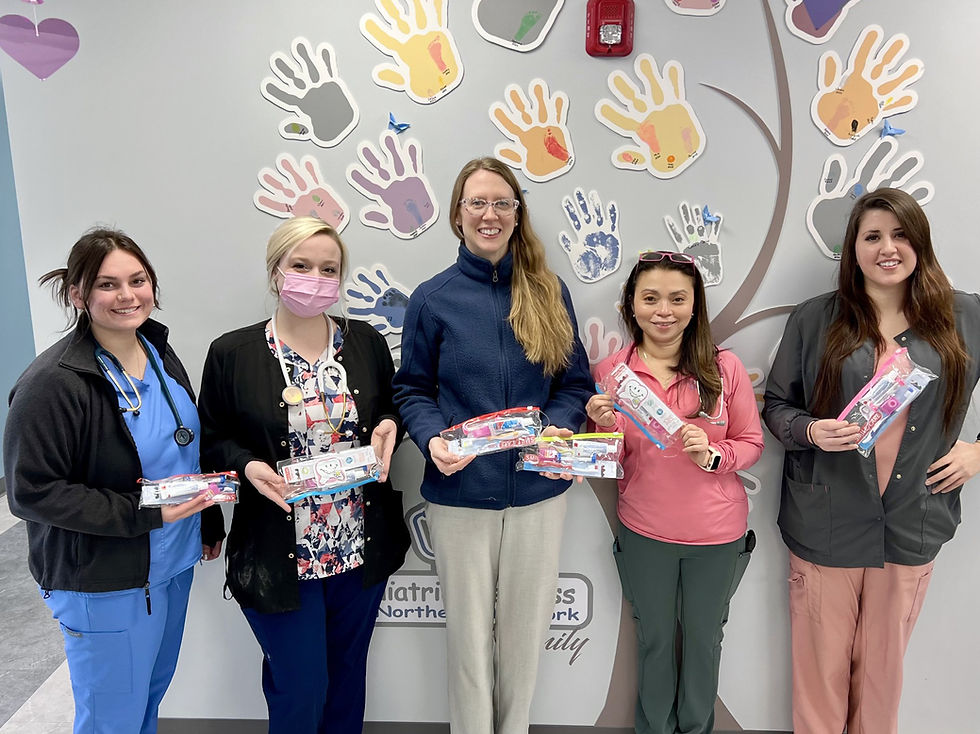FDRHPO Releases Findings From the 2024 Community Health Survey
- hboname
- Sep 28, 2024
- 3 min read

September 29, 2024 – The 9th Annual Community Health Survey of Adult Residents in Jefferson, Lewis and St. Lawrence counties has been completed for 2024. This year’s participation reached 1,878 individuals across the region, resulting in an average margin of error of ±2.7%. To date, 15,691 individuals have participated since the first survey in 2016.The survey aims to collect the most up-to-date data regarding residents’ health and their perceptions of our healthcare system in the region. These findings will be utilized by stakeholders in the three counties to evaluate the impact of past initiatives and to make data-driven decisions in future planning of initiatives and programs.
Survey questions are developed and updated yearly by North Country Health Compass Partners, a group comprised of representatives from Jefferson, Lewis, and St. Lawrence County public health departments, hospitals, healthcare facilities, behavioral health clinics, and a wide array of community-based organizations that focus on the wellness of our community. Some questions remain constant from past years, while other new questions are developed each year to reflect current needs.
“The Community Health Survey is a resource that our stakeholders look forward to each year,” said Kayla Burns, Population Health Coordinator at Fort Drum Regional Health Planning Organization (FDRHPO). “The data collected and released showcases the needs of the current regional healthcare climate and we can tailor the survey questions from year to year as we monitor health trends from previous years. It’s a valuable resource for our partners and our communities.”
Below are 10 key findings from this year’s survey:
1. While most North Country adult residents (82%) report having one person or medical office they think of as their primary care provider, only half (52%) reported “always” feeling that they and their values are respected at the doctors.
2. The percentage of North Country residents reporting having visited a dentist or dental clinic within the past year for a routine cleaning is continuing to recover from low of 55% in 2020, to 63% in 2024.
3. A large majority (78%) of North Country residents ages 45-75 reported having had a colonoscopy or colorectal cancer screening in the past 10 years. This is at an all-time high since first measured in 2022.
4. Amongst female participants ages 40-75, 4 in 5 (80%) have had a mammogram within the past two years.
5. North Country residents report experiencing challenges/difficulties accessing dental/oral health (31%), primary care (30%), and eye care services (25%) locally within the past 12 months. These have all increased significantly from last year.
6. Self-assessments of mental and dental health as ‘excellent’ or ‘very good’ have been slowly recovering since the pandemic, while self-assessments of physical health are at a low of 39%.
7. Approximately six-in-ten North Country residents report having been diagnosed with at least one of the eight studied chronic conditions, with high blood pressure and obesity being the most commonly reported.
8. 1 in 12 North Country residents report that their current living situation is not steady (0.5% homeless, 7.5% have a place to live but are worried about losing it in the future).
9. Approximately 2 in 5 North Country residents report participating in 1-5 hours of planned exercise per week. Overall, North Country residents report that they are less physically active than they were when they were last asked in 2016.
10. The consumption of fruits and vegetables has decreased since last measured in 2016, however, most North Country residents report having at least one serving of fruit (67%) and one serving of vegetables (78%) in a typical day.
Certain behaviors and outcomes are beginning to return to pre-pandemic levels. Now in its 9th year, the annual Community Health Survey provides valuable data on community health perceptions and behaviors, helping stakeholders monitor health trends as residents reestablish their regular healthcare routines.
“The insights gained from the Community Health Survey are invaluable. This data not only highlights the unique challenges our rural communities face but also empowers stakeholders to develop targeted, effective solutions that address the specific health-related needs of Jefferson, Lewis, and St. Lawrence counties,” said Pat Fontana Deputy Director at FDRHPO. “Our goal is to leverage these findings to make informed decisions that will improve health outcomes across the region.”
Questions and comments can be directed here. For a full copy of the 2024 Community Health Survey, follow this link.
For additional information please contact Kayla Burns by emailing kburns@fdrhpo.org.




Comments